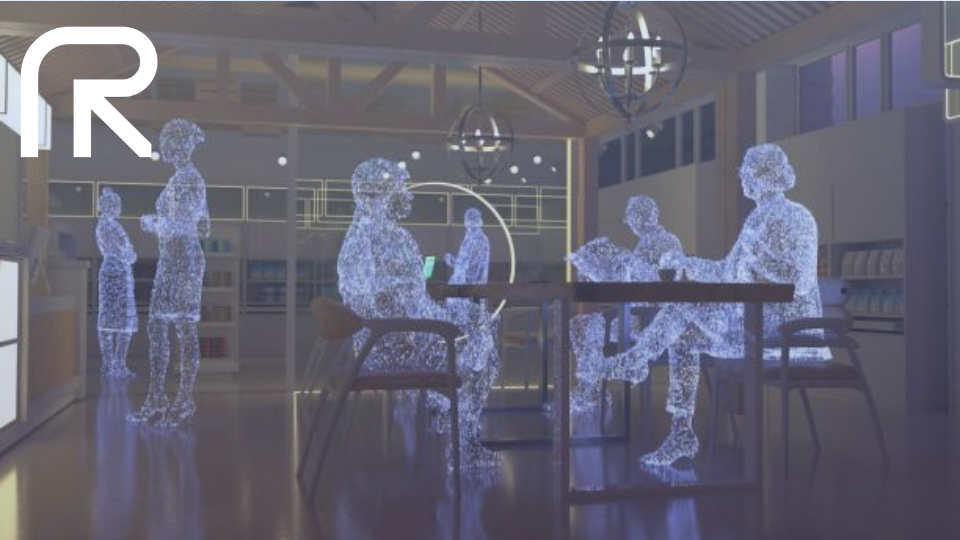AI-talian Applications Series - DC Restaurant Violation Forecasting
Mar 7, 2023 12:00:00 AM Mayar S.Mosaad 5 min read

In the AI-Talian Application, we roam with you the hallways of AI in all industries; big and small. Because today, where you most and least expect it, AI is doing wonders.
In the places you least expect it, today, you can find AI. Even on your plate!
And in case you are wondering, AI now fears for your life and is inspecting the integrity of your plates and the restaurants that serve you now in DC & Chicago.
How the Forecast Started
In 2014, long before AI took our feeds by storm, the Department of Innovation and Technology for the city of Chicago built an algorithm to predict likely health code violations for restaurants based on publicly available data.
During a food inspection, it's really important to identify any major problems. One of these problems is when food is not stored at the right temperature, which can cause people to get sick. In fact, a single critical violation can result in an overall inspection failure, requiring the establishment to take corrective action that meets the Department of Public Health's standards.
This original project was turned into an open source project, freely available on Github, so other cities could implement this model and make the best out of its findings. Check it out for yourself here.
Find below the highlights of the project!

- Over 15,000 food establishments across the City of Chicago that are subject to sanitation inspections by the Department of Public Health.
- Three dozen inspectors are responsible for checking these establishments, which means one inspector is responsible for nearly 470 food establishments.
- The Department of Public Health has systematically collected the results of nearly 100,000 sanitation inspections; meanwhile, other city departments have collected data on 311 complaints, business characteristics, and other information.
- The result is that food establishments with critical violations are more likely to be discovered earlier by the Department of Public Health's inspectors.
- Food establishments with critical violations were discovered over one week earlier during a two-month evaluation. But How?
The analytical model was tested using a double-blind retrodiction. The Department of Public Health conducted inspections via its normal operational procedure during September and October of 2014.
During these 2 months, food establishments were visited in their normal order. During this time, the Department of Public Health visited 1,637 food establishments. Almost 16 percent of them—258 establishments—yielded at least one critical violation during the experiment. Over half, 55% or 141 establishments, were found during the first month of the evaluation, whereas 117 establishments (45%) were found during the second half.
With what Chicago has accomplished with this AI-powered trial and thanks to the open source project, other states were encouraged to replicate the experience to maintain the food industry quality within their locality. And this is exactly what DC has done in 2016.
Replication Prototype by DC
The DC Restaurant Violation Forecasting project, which is a prototype of replicating Chicago's Food Inspection Forecasting project with DC data in Python, was undertaken as a Capstone project by Nicole Donnelly and Jonathan Boyle as part of the General Assembly Data Science Immersive.
Next is the hypothesis as put by Donnelly for the DC report!
The Hypothesis by Nicole A. Donnelly, CMCP

The Work Frame of DC Restaurant Violation Forecast
“Food-borne illness outbreaks affect millions of people annually. The city of Washington, DC, like most cities, has limited resources to inspect food establishments for critical violations that lead to these outbreaks. We can use machine learning to predict when a critical violation is likely to occur and prioritize inspections to catch these violations sooner, mitigating food-borne illness outbreaks and more effectively deploying limited resources.”
The DC Report Highlights
- 11% more violations were detected through AI
- 10 days earlier detection than the traditional food inspection method
And with what AI has proved to accomplish, open data became the way to outspread the results.
Leveraging Open Data to Improve Public Health & Safety
Open Data Nation, a company that specializes in leveraging open data to create innovative solutions for businesses and governments, is expanding this experience to build a data product called FIVAR.
FIVAR, which stands for "Food Inspection and Violation Analysis and Reporting”, is a web application that makes food inspections smarter by identifying high-risk food establishments and providing an overall score based on inspection history and other factors.
Open Data Nation's approach to using open data for public health and safety has the potential to revolutionize the way we think about food inspections and other areas of public health. By providing real-time, data-driven insights, they are helping to create a safer and more transparent environment for everyone.
You know what else does the job faster than usual, just like the restaurant's violation forecast? LyRise hiring process. Wondering how AI can elevate your business? Or looking for an AI or ML star for your team? We have your back!
Get top-notch talent from our niche pool in less than 14 days; all you have to do is tell us what you need here.